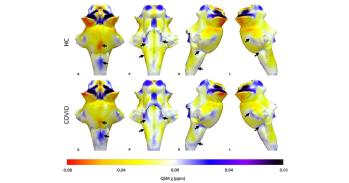
A new book about how Covid-19 rocked the world argues that Elizabeth I would have supported the poor in the aftermath of the pandemic.
A new book about how Covid-19 rocked the world argues that Elizabeth I would have supported the poor in the aftermath of the pandemic.
The evidence of history is that societies and economies fare much better with a strong welfare state
Simon Szreter
The Tudor Monarch introduced the world’s first universal welfare state in 1601, groundbreaking at the time, in response to repeated plague outbreaks and famines. The ‘Poor Laws’ required all of England’s 10,000 parishes to take responsibility for their poor – anyone who refused to contribute could face prison. For the next 200 years, England was better placed to weather plagues, crop failures, and recessions than anywhere else in Europe and it laid the foundations for the Industrial Revolution.
Simon Szreter, Professor of History and Public Policy at Cambridge and co-author of After The Virus – Lessons from the Past for a Better Future, said: “The evidence of history is that societies and economies fare much better with a strong welfare state and when you cut welfare to make savings, you damage society and the economy.
“Elizabeth was able to introduce an extraordinary and comprehensive response to the problems that had worried her for so long. Her ‘Poor Laws’ of 1598 and 1601 put the responsibility on local communities to care for their neighbours to make sure no one would fall into destitution. This included orphans, widows, the old, infirm, sick, involuntarily unemployed and single mothers and their children. This was the world’s first social security and welfare system – nothing like this had existed before.”
In After The Virus, Szreter and his co-author Hilary Cooper, a former government economist and senior policy maker, explore why the UK was so unprepared for the Covid-19 pandemic and suffered one of the highest death rates and worst economic contractions of the major world economies.
The book draws lessons from history and its authors say that ‘Good Queen Bess’, as Elizabeth I became known, was truly revolutionary and would not have accepted Boris Johnson’s government’s cut to universal credit. The £20 weekly increase to universal credit was introduced last year in response to the Covid-19 pandemic, but it has been controversially halted in October 2021.
Cooper, an expert in labour markets, children’s services and local development, said: “Elizabeth would absolutely have taxed the rich to support the poor in the aftermath of a virus that has claimed the lives of nearly 140,000 people in the UK.
Cooper said: “The lesson today is the same: we cut welfare – including education and health - at our peril. Covid-19 hit the poorest the hardest, with death rates highest in deprived areas and among people of colour. We must learn from the successes from our past and start investing in our population’s wellbeing instead of repeating the mistakes of austerity.”
Szreter, Fellow at St John’s College, said: “Britain had the world’s first welfare state – put in place 400 years ago by Elizabeth I – and the country actually became richer for it. With an unavoidable responsibility to provide for the poor the wealthy increased their philanthropy, funding alms houses, schools, apprenticeships and hospitals to prevent them falling into hardship in the first place.
“It was a welfare system that worked because the prosperous set about contributing and investing in their fellow citizens while Justices of the Peace rigorously enforced payments into the poor law funds. With the old and the sick cared for, the young in particular were liberated to follow the work, migrating to towns and cities where new jobs were becoming available, secure, too, in the knowledge that their parish would support them if things didn’t work out.
“This security ended famine nearly 150 years ahead of other European nations and paved the basis for Britain to emerge as the world’s first industrial nation. The labour mobility and rapid urban growth that was unique to Britain in the seventeenth and eighteenth centuries was facilitated by the security the poor law provided.”
Szreter’s research encompasses economic, social and public health history. He was the first non-American to win the American Public Health Association’s Viseltear Prize. He added: “This week’s cuts to universal credit and the continued inflexibility of the five-week wait to receive benefits will not encourage anyone to take risks in today’s labour market, while the dire state of social care leaves many unable to move from where they can easily care for ageing relatives. Welfare savings are simply a false economy.”
Although the book offers optimism and a clear manifesto for change, it also offers a warning – that Covid-19 is a ‘dress rehearsal’ for bigger crises ahead. Cooper explained: “Covid-19 is a warning shot across our bows, there are going to be many more global crises – climate change and biodiversity collapse are the big threats. Perhaps Covid-19 will be the warning the world needed to learn lessons from the past.”
Reference
After the Virus: Lessons from the Past for a Better Future by Hilary Cooper and Simon Szreter is published by Cambridge University Press.

The text in this work is licensed under a Creative Commons Attribution 4.0 International License. Images, including our videos, are Copyright ©University of Cambridge and licensors/contributors as identified. All rights reserved. We make our image and video content available in a number of ways – as here, on our main website under its Terms and conditions, and on a range of channels including social media that permit your use and sharing of our content under their respective Terms.




